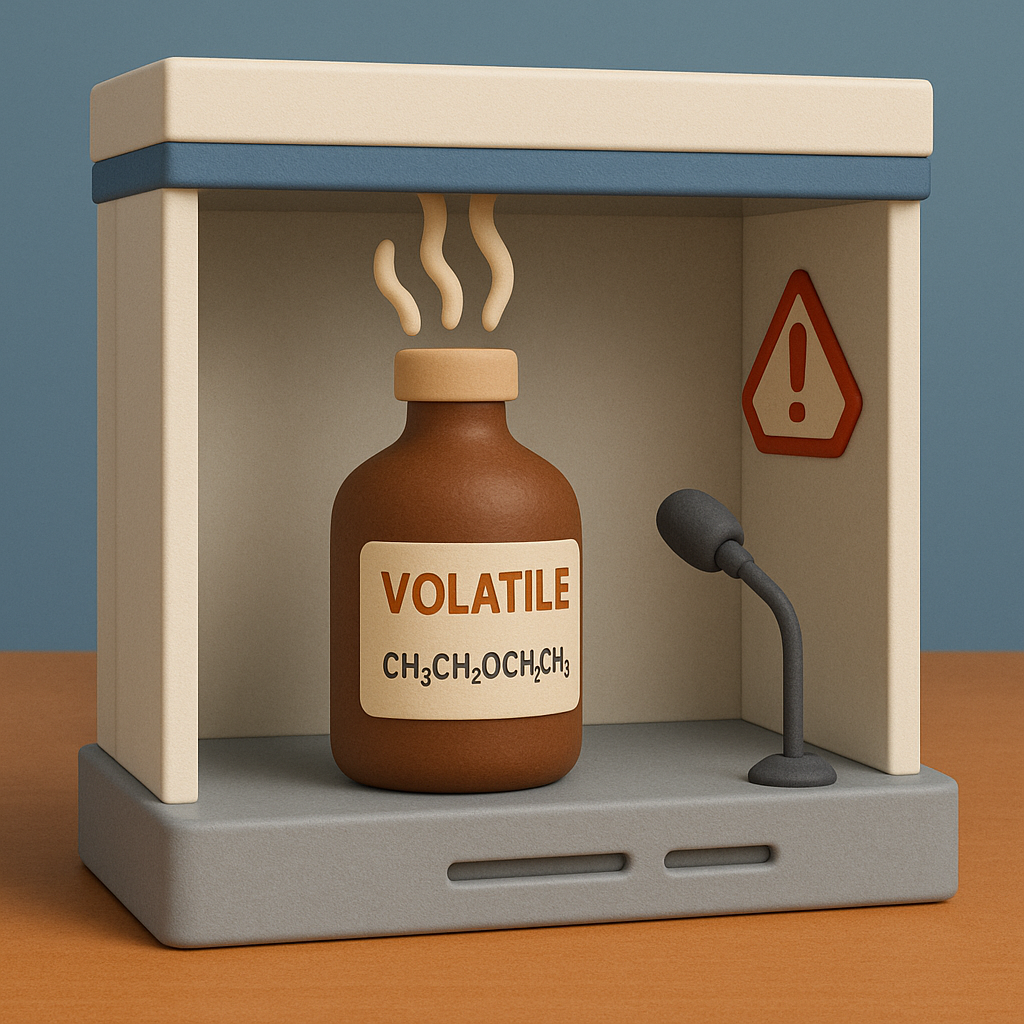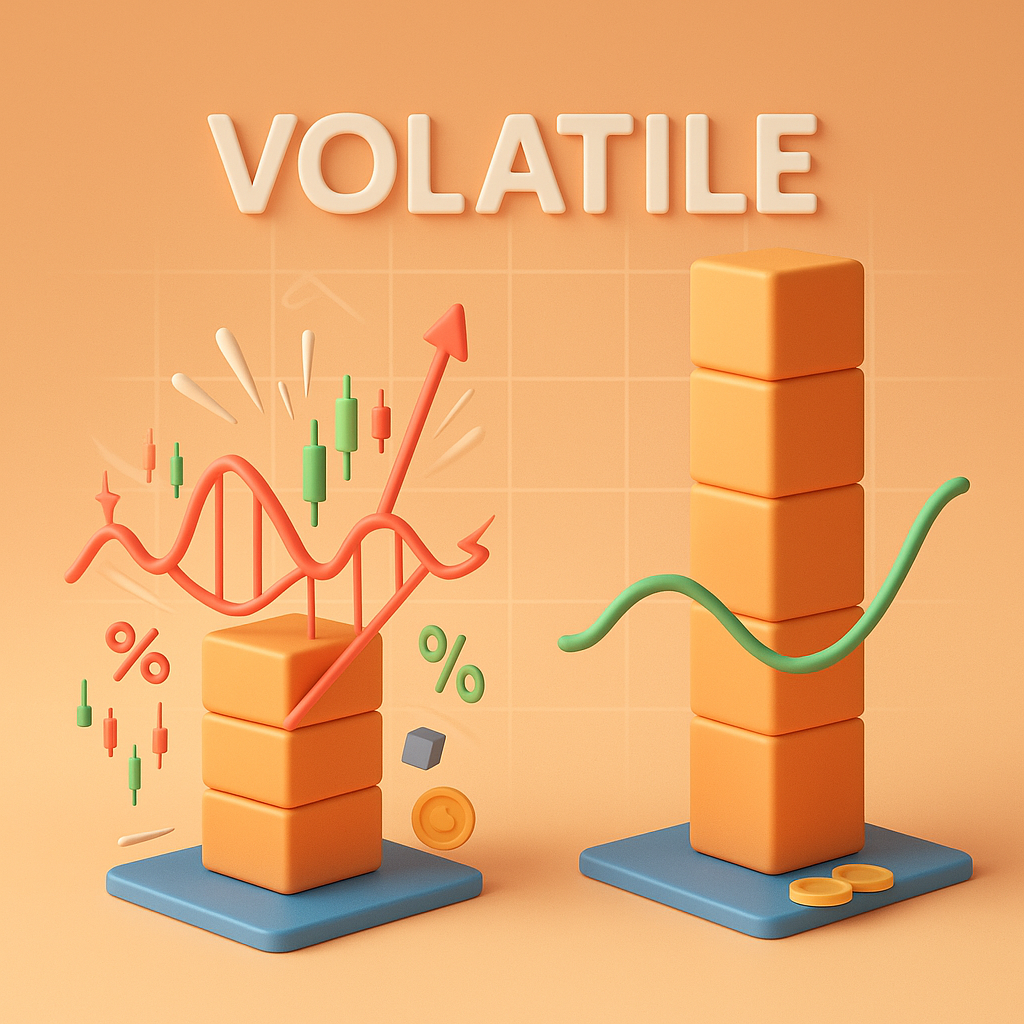Volatile
Definition
Volatile is primarily an adjective meaning prone to rapid or unpredictable change; unstable. In science, it describes a substance that evaporates readily at normal temperatures. In finance and statistics, it denotes high variability. As a noun (often plural), it refers to a volatile substance or to compounds with low boiling points (e.g., planetary or geological volatiles).
Parts of Speech
- Adjective
- Noun (countable; chiefly scientific, often plural volatiles)
Pronunciation
American English
- IPA: /ˈvɑːlətaɪl/
- Respelling: VOL-uh-tyle
British English
- IPA: /ˈvɒlətaɪl/
- Respelling: VOL-uh-tyle
Etymology
Late Middle English: from Old French volatil, from Latin volatīlis “winged, swift, fleeting,” from volāre “to fly.” The sense of “readily evaporating” arose by comparison to things that “fly off” into vapor.
Derivatives
- volatility (noun) — the quality of being volatile; in finance, a measure of price variability
- volatilely (adverb) — in a volatile manner (rare)
- volatilize / volatilise (verb) — to make or become volatile (chem.); convert to vapor
- volatilization / volatilisation (noun) — the act or process of becoming vapor
- nonvolatile (adjective) — not readily evaporating; also “non-volatile memory” (computing)
- volatiles (plural noun) — substances with low boiling points (e.g., H₂O, CO₂, NH₃ in planetary science)
Synonyms
- unstable
- unpredictable
- explosive
- fickle
- mercurial
- skittish
- evaporative (scientific sense)
- high-variance (finance/statistics, attributive)
Antonyms
- stable
- steady
- predictable
- consistent
- calm
- placid
- nonvolatile (scientific/technical)
Usage
General: Often modifies situation, mix, region, relationship, mood. In finance: volatile markets/prices/assets. In science: volatile compounds, volatile organic compounds (VOCs). In computing: volatile memory; in programming (C/C++/C#), volatile is a keyword with a technical meaning.
- “The post-election climate remained highly volatile.”
- “Tech stocks were unusually volatile throughout the quarter.”
- “Acetone is a volatile solvent that evaporates quickly.”
- “DRAM is volatile memory and loses data when power is removed.”
Related Terms
- Volatility: Degree of variation (e.g., standard deviation of returns); general instability.
- VOCs (volatile organic compounds): Organic chemicals with high vapor pressure at room temperature.
- Non-volatile memory (NVM): Storage that retains data without power (e.g., flash).
- Volatilize: To convert to vapor; to cause to evaporate.
- Mercurial: Quick, changeable in temperament (semantic overlap with personality sense).
Detailed Definitions
Adjective
- Prone to rapid, unpredictable change; unstable or explosive (of situations or conditions).
- Example: “The ceasefire created a volatile peace that could collapse at any moment.”
- Changeable or mercurial in mood or temperament (of persons or groups).
- Example: “His volatile temperament made negotiations delicate.”
- (Chemistry/Physics) Readily evaporating at normal temperatures; having a low boiling point.
- Example: “Diethyl ether is highly volatile and must be handled in a fume hood.”
- (Finance/Statistics) Exhibiting large short-term fluctuations; characterized by high variability.
- Example: “Small-cap equities tend to be more volatile than large-cap stocks.”
- (Computing) Dependent on continuous power to retain stored information (of memory).
- Example: “Cache and main memory are volatile, whereas SSDs are non-volatile.”
Noun
- (Chemistry/Geoscience) A substance that vaporizes readily; collectively, compounds with low boiling points.
- Example: “Cometary volatiles such as water and carbon dioxide sublimate near the Sun.”
volatile








